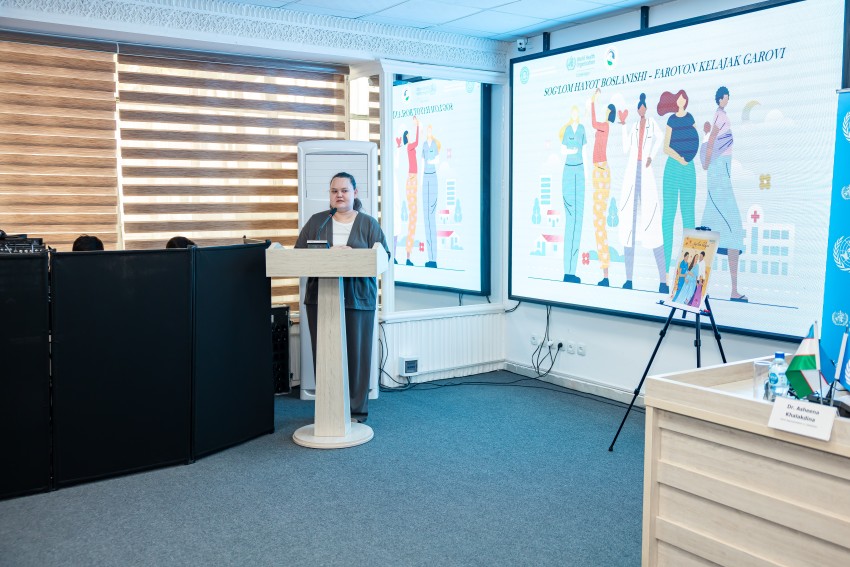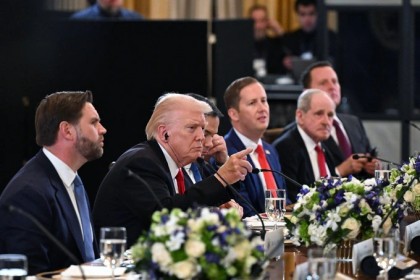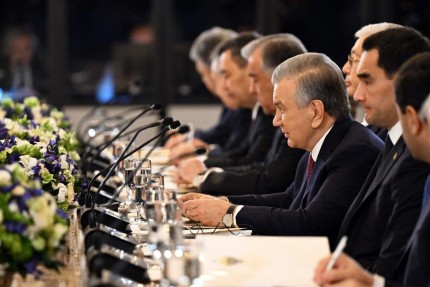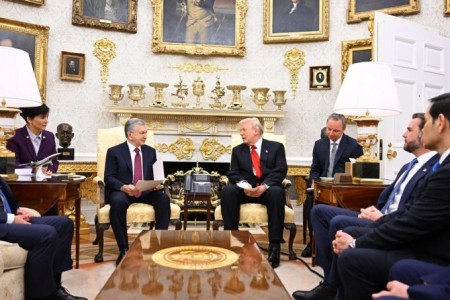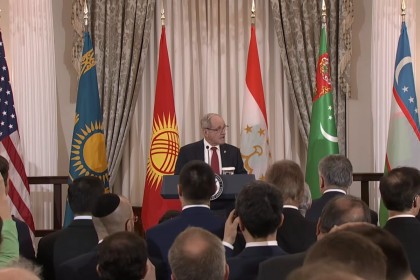On February 19, President Shavkat Mirziyoyev approved amendments changing the powers of the chambers of parliament in order to bring them into line with the updated Constitution. The amendments were passed by the Legislative Chamber on November 14, and the Senate approved it on January 19.
As Gazeta.uz noted earlier, the amendments provide that the Legislative Chamber and the Senate can decide on self-dissolution by a majority vote - at least two-thirds of the total number of deputies or senators.
While, now the same person cannot serve as prosecutor general for more than two consecutive terms. Similar amendment shall apply to the Chairman of the Senate and the Speaker of the Legislative Chamber. Currently, all three are elected or appointed for a period of 5 years, there are no restrictions on number of terms.
According to the new Constitution, the Senate reviews bills passed by the Legislative Chamber within 60 days (this period was not specified in the previous version of the Constitution, but was indicated in the resolution of the lower house of parliament) and, if approved, no later than 10 days, it is sent to the president for signing and promulgation.
If the Senate has not made a decision to approve or reject the law within two months, the Legislative Chamber sends it directly to the president for signing and promulgation.
The president must sign and promulgate the bill within 60 days (in the old version - 30 days, but this period was not always respected).
The total number of senators elected from the provinces and appointed by the president is reduced from 100 to 65. The number of senators working on a permanent basis will remain at 25.
A number of powers of the Senate shall be abolished and become the exclusive powers of the Legislative Chamber:
- consideration of the report of the Accounts Chamber;
- consideration and approval, upon the proposal of the president, of the candidacy of the prime minister;
- hearing reports from the Prime Minister on current issues of the country’s socio-economic development, as well as from members of the Cabinet of Ministers on their activities;
- hearing the annual report of the Cabinet of Ministers on the most important issues of the socio-economic life of the country;
- and many others.
The exclusive (new or changed) powers of the Senate include:
- election, on the proposal of the president, of the chairperson of the Constitutional Court, the Supreme Court, the Supreme Judicial Council, the head of the republican anti-corruption body and the head of the republican antimonopoly body;
- consideration and approval, upon nomination by the president, of candidates for the positions of prosecutor general and chairman of the Accounts Chamber;
- holding consultations on the candidate proposed by the president for the position of chairman of the State Security Service;
- upon the recommendation of the president, appointment and dismissal of heads of diplomatic and other missions of Uzbekistan in foreign states and international organizations;
- approval of presidential decrees on the formation and abolition of ministries and other republican executive bodies;
- hearing reports from the heads of diplomatic and other missions of Uzbekistan in foreign countries and international organizations on issues of their activities;
- sending a parliamentary request to government officials and implementing other forms of parliamentary control;
- assistance to local representative bodies of government in the implementation of their activities;
- cancellation of decisions of local representative bodies of government in case of non-compliance with legal norms;
- election of the chairman of the Senate and his deputies, chairmen of committees and their deputies;
- resolving issues of depriving a member of the Senate of immunity on the proposal of the Prosecutor General and others.
The number of deputy speakers of the Legislative Chamber shall be reduced from 7 to 2, with a ban on membership in parties and factions for the period of work in this position. Deputy Speakers of the Legislative Chamber can be revoked early by a decision of the chamber adopted by more than two-thirds of the votes of the total number of deputies by secret ballot.
The Legislative Chamber will now consider and approve candidates for members of the Cabinet of Ministers on the proposal of the president (now the prime minister).
The nomination of the Prime Minister for consideration and approval by the Legislative Chamber (previously together with the Senate) is submitted by the President after consultation with all factions of political parties (previously the party that received the most seats in the elections) within a month after the election of officials and formation bodies of the chambers of the Oliy Majlis or within a month after the dismissal of the Prime Minister or his resignation, the current composition of the Cabinet of Ministers.
Individuals collecting at least 100 thousand votes, the Senate, the Ombudsman, and the Central Election Commission, as a legislative initiative, will be able to submit legislative proposals to the Legislative Chamber.
Now the nominations of the chairman, deputy chairman, members and secretary of the Supreme Judicial Council, the head of the republican anti-corruption body and the head of the republican antimonopoly body are submitted by the president to the Senate.
The Prosecutor General and the Chairman of the Accounts Chamber shall be appointed by the President after approval of their candidacies by the Senate.
The candidate for the position of Chairman of the State Security Service, proposed by the President, is appointed by the President after consultation with the Senate.
A deputy and a senator are granted paid annual leave of 36 working days, except in cases where the law provides for a longer leave.
It is established that the above-mentioned provisions of the law, which determine the quantitative composition of the Senate and the names of committees, as well as the number and status of deputy speakers of the Legislative Chamber, are planned to be implemented following the results of parliamentary elections in 2024.



